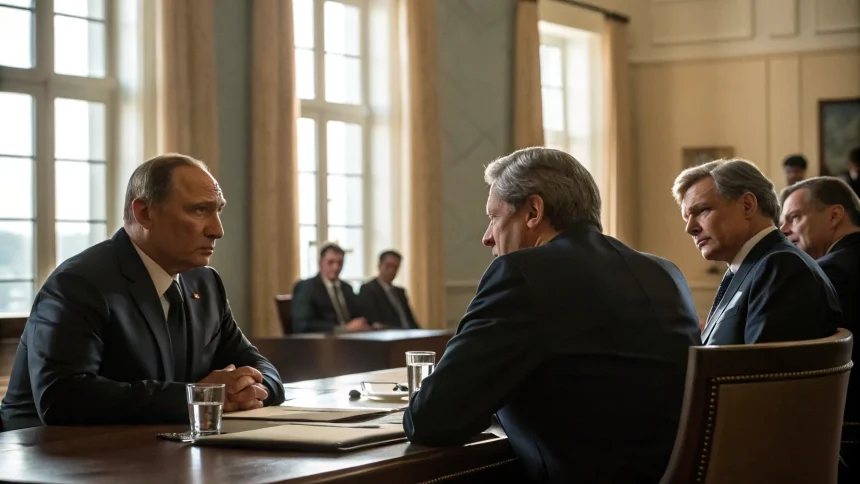With tensions running high, Washington and Moscow are moving to set up a new presidential summit after another direct call between Donald Trump and Vladimir Putin. A senior Kremlin aide said US Secretary of State Marco Rubio and Russian Foreign Minister Sergei Lavrov will speak in the coming days to plan the meeting, underscoring an urgent push to manage both conflict and communication.
The aide, Yuri Ushakov, briefed reporters after what he described as the year’s eighth call between the two leaders. He said the next steps, including the date and site, hinge on how quickly the diplomatic groundwork comes together. Ushakov also issued a pointed warning tied to recent military moves.
“Vladimir Putin reiterated his thesis that Tomahawk missiles will not change the situation on the battlefield, but will cause significant damage to relations between our countries, not to mention the prospects for a peaceful resolution,” Ushakov said.
What the planned summit signals
The decision to start formal planning for another face-to-face meeting suggests both capitals see value in high-level engagement. Ushakov said the call was initiated by Moscow, signaling Russia’s interest in shaping the agenda and pace. Coordinating through Rubio and Lavrov places the process in the hands of the top diplomats, who can translate broad goals into specific proposals.
Such summits have often focused on arms control, regional conflicts, and strategic stability. Even when outcomes are modest, direct talks can cool flashpoints and set rules of the road for future crises.
The Tomahawk warning and why it matters
Ushakov’s reference to Tomahawk missiles highlights the risk that military actions can derail diplomacy. Tomahawks are cruise missiles often used for long-range precision strikes. Their deployment has carried heavy political weight in recent years, from punitive strikes to signaling operations.
The Russian message is clear: strike campaigns may not change the tactical balance, but they can harden political positions and shrink space for negotiation. The warning sets a tough tone for talks, while also framing the summit as a chance to prevent miscalculation.
Inside the choreography: How timing will be set
According to Ushakov, the summit timing depends on “how the preparatory work progressed.” That points to an agenda still in flux. For any summit to succeed, working groups typically need to draft joint statements, outline deliverables, and map out areas of disagreement.
- Rubio and Lavrov’s talks will define priorities and scope.
- Security advisers will shape any agreements on military conduct or incident prevention.
- Leaders will weigh costs and benefits against domestic political pressures.
Ushakov’s mention of the eighth leader-to-leader call this year also shows an ongoing back-channel of direct communication, even amid public disputes.
Competing goals, shared risks
Both sides enter with conflicting aims. Moscow seeks recognition of its security interests and limits on Western military moves. Washington often links progress to changes in Russian behavior and wants clarity on red lines.
Yet some interests overlap. Both sides want to avoid accidents between their forces, reduce the chance of escalation, and manage arms risks. Those areas offer potential ground for limited agreements while larger disputes remain unsettled.
What success could look like
Even modest steps could reduce friction. Possible outcomes include a renewed dialogue on strategic stability, rules for military deconfliction, or commitments to avoid strikes that could trigger direct confrontation.
Clear communication channels are a basic safeguard. If Rubio and Lavrov can agree on practical steps before the leaders meet, they improve the odds of a productive summit rather than a photo opportunity.
The road ahead
The Kremlin’s disclosure sets expectations and applies public pressure for progress. It also raises the political cost of failure. How the two sides handle military actions in the coming days will either ease or inflame summit planning.
For now, the next move rests with the diplomats. The warning about Tomahawk missiles is both a critique and a challenge: keep military options in check to leave room for talks. The coming Rubio–Lavrov conversations will show whether that message can be translated into a workable plan and a summit that lowers the temperature rather than raises it.







